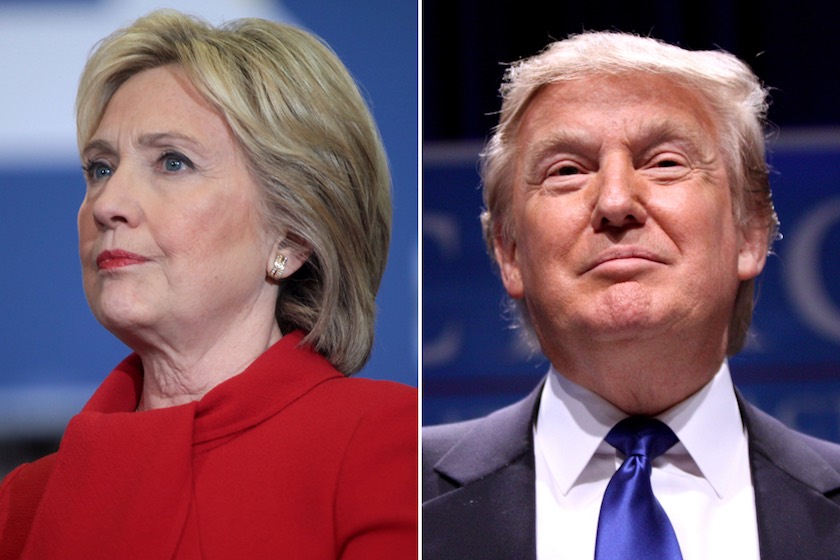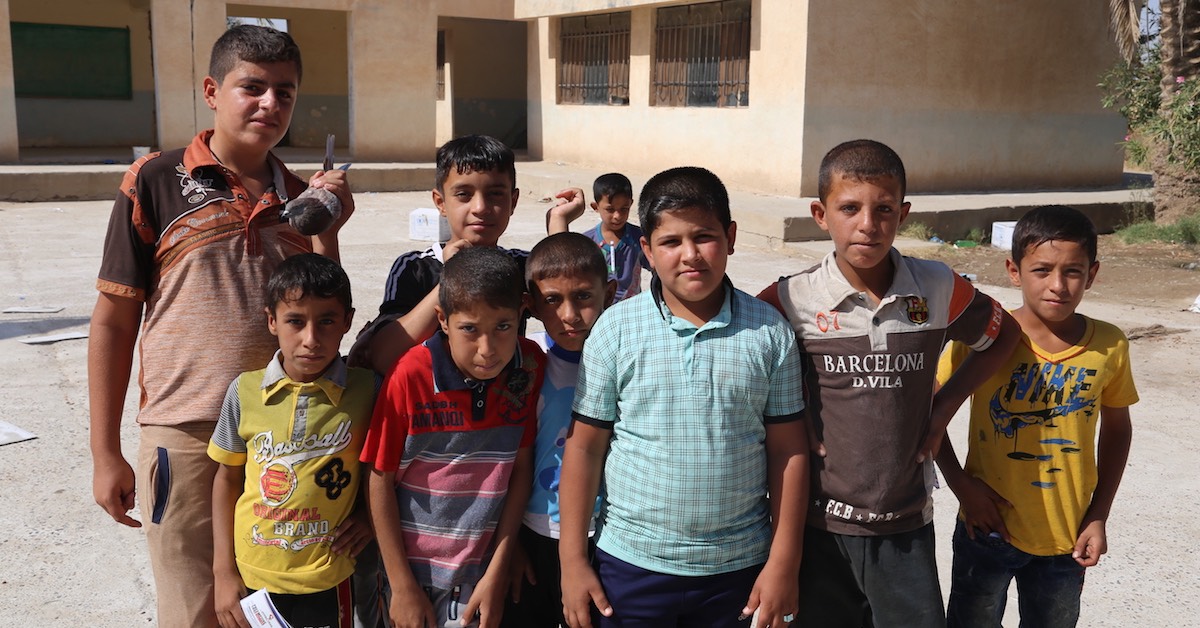The battle for Mosul was a major topic at the final presidential debate between Donald Trump and Hillary Clinton.
Several minutes into the debate, moderator Chris Wallace asked what is arguably the most pressing question about Mosul, the battle with ISIS, and the whole future of Iraq:
If [Iraqi forces] are successful in pushing ISIS out of that city and out of all of Iraq, the question then becomes: What happens the day after?
Much of what followed focused more on the battle itself than its aftermath. Along the way, several claims were made that are less-than-true or just plain false. Here’s what the candidates got wrong about the battle for Mosul…
1. American troops in Iraq are giving “help and advice… but I will not support putting American soldiers into Iraq as an occupying force.”
Hillary Clinton sought to frame the U.S. military presence in Iraq as something less than full-scale combat. While her statement about giving “help and advice” is technically true, it’s not quite all the truth.
An estimated 5,000 U.S. troops are stationed in Iraq. That’s a far cry from the 165,000 who served here at the height of the 2007 surge, but it’s still a sizable number.
According to Clinton, U.S. troops are here to play a supporting role—to “help and advise” Iraqi forces who are leading the charge on Mosul. This is consistent with how the U.S. military describes its role. And while it may be accurate as far as it goes, it’s also incomplete—and perhaps a little misleading.
Make no mistake: U.S. forces are actively engaged in the fighting, shooting, and bombing. In addition to boots on the ground, the U.S. has conducted more than 12,000 airstrikes against ISIS in Syria and Iraq.
That’s arguably a lot more than giving “help and advice.”
The choice of words by politicians and military officials is no accident. They know that most Americans are wary of sending ground troops into Iraq again. “Help and advice” sounds far more palatable than “active combat.” It distances us from the uglier, messier aspects of war—namely, the actual killing. Whether or not you believe military involvement in Iraq is justified, we should not soft-pedal what’s actually taking place. We shouldn’t hide it under layers of euphemism and half-truth.
 Photos by Gage Skidmore (CC BY-SA 2.0 / CC BY-SA 3.0)
Photos by Gage Skidmore (CC BY-SA 2.0 / CC BY-SA 3.0)
2. The battle for Mosul was timed to benefit Hillary Clinton.
Donald Trump raised the idea that the timing was designed to benefit his opponent, that it’s happening now “because she’s running for the office of president.” This claim, however, doesn’t hold up under scrutiny.
There’s no question, a victory in Mosul would give President Obama a big “win” before he leaves office. It might help to cement or salvage his legacy (depending on which way you lean politically.)
But here’s the main problem with the notion that Mosul was timed to influence the U.S. election: Iraq is a sovereign country. It’s their government—not the U.S. or its coalition partners—who’ve decided which ISIS-held cities to attack, and when.

Even when the U.S. has sought to influence the timing—or, more accurately, the order in which cities are targeted for liberation—Iraq has not hesitated to go its own way, for better or worse. For example, Iraq opted to liberate Fallujah before Mosul, against the advice of American military leaders. “The U.S. has long urged the Iraqis to blockade Fallujah and focus on other targets, like Mosul,” the Iraq-based news site Niqash reported back in May.
But there’s another problem with Trump’s claim that the U.S. is playing puppet master in Iraq, because he also said that “Iran is taking over Iraq.” Both cannot be true. The idea that America and Iran—longtime adversaries—are simultaneously calling the shots in Baghdad defies plausibility.
3. The battle is going badly because it lacked “the element of surprise.”
Trump argued that the Mosul offensive should have been kept secret until the moment of attack. “Douglas MacArthur, George Patton [would be] spinning in their graves at the stupidity of our country,” he said in last night’s debate.
Trump went on to say the battle was going poorly because it lacked the element of surprise. “If you look at what’s happening, [it’s] much tougher than they thought—much, much tougher.” (This claim is out of step with assessments from Iraqi Security Forces, Kurdish Peshmerga leaders, and U.S. military officials, who say the battle is progressing on or slightly ahead of schedule.)
One problem with Trump’s argument is that a surprise attack would not be viable in an environment like Mosul. ISIS controls not just the city, but substantial outlying territory. Iraqi forces have to liberate dozens of villages and towns just to reach Mosul—which is what they’ve been doing for weeks. As they’ve done so, we come behind them with truckloads of food, water, and medical supplies for newly liberated families. The point is, there is no way to liberate territory surrounding Mosul and not let ISIS know you’re coming.
But tactical viability isn’t the main issue. The prospect of a sneak attack on Mosul raises much bigger moral and ethical questions.
Namely, how do you go about a sneak attack in the first place? Would you carpet bomb the entire city, as some have actually proposed? The only way you could even consider a strategy like this is if you didn’t care how many civilians are killed in the process.
And that’s the biggest reason for announcing the Mosul offensive ahead of time: to give civilians time to prepare and protect themselves as best they can. Surely it’s better to say “we’re coming” beforehand, if it means that fewer innocent people will die.
Yes, it may give ISIS a few extra weeks to prepare—though, in reality, they’ve been preparing for months, if not years. But let’s do everything in our power to preserve the lives of more than a million civilians trapped in Mosul—children, mothers, fathers, grandparents.
4. “These people [ISIS] have all left. They’ve all left.”
According to Trump, ISIS fighters were able to escape because the battle was announced ahead of time. “They’ve all left,” he said, without explaining how he can reconcile this with the assertion that Iraqi forces have faced tougher-than-expected resistance in the fight for Mosul.
U.S. military officials say there are 5,000 ISIS fighters in Mosul. ISIS supporters put the figure higher, claiming there are 7,000 fighters occupying the city.
Regardless of how many there are, we’ve seen the unmistakable signs of their presence: ISIS militants kidnapping civilians from outlying areas to use as human shields, posing as Iraqi police to ambush newly liberated villages, and more.
ISIS is still very much present and active in Mosul. The battle will continue. Politicians will keep trying to frame the “issue” of Iraq to their advantage—and in many cases, they will continue to get it wrong.
Meanwhile, the most important question still begs for an answer:
What happens after Mosul is liberated?
Let’s talk about that instead.


